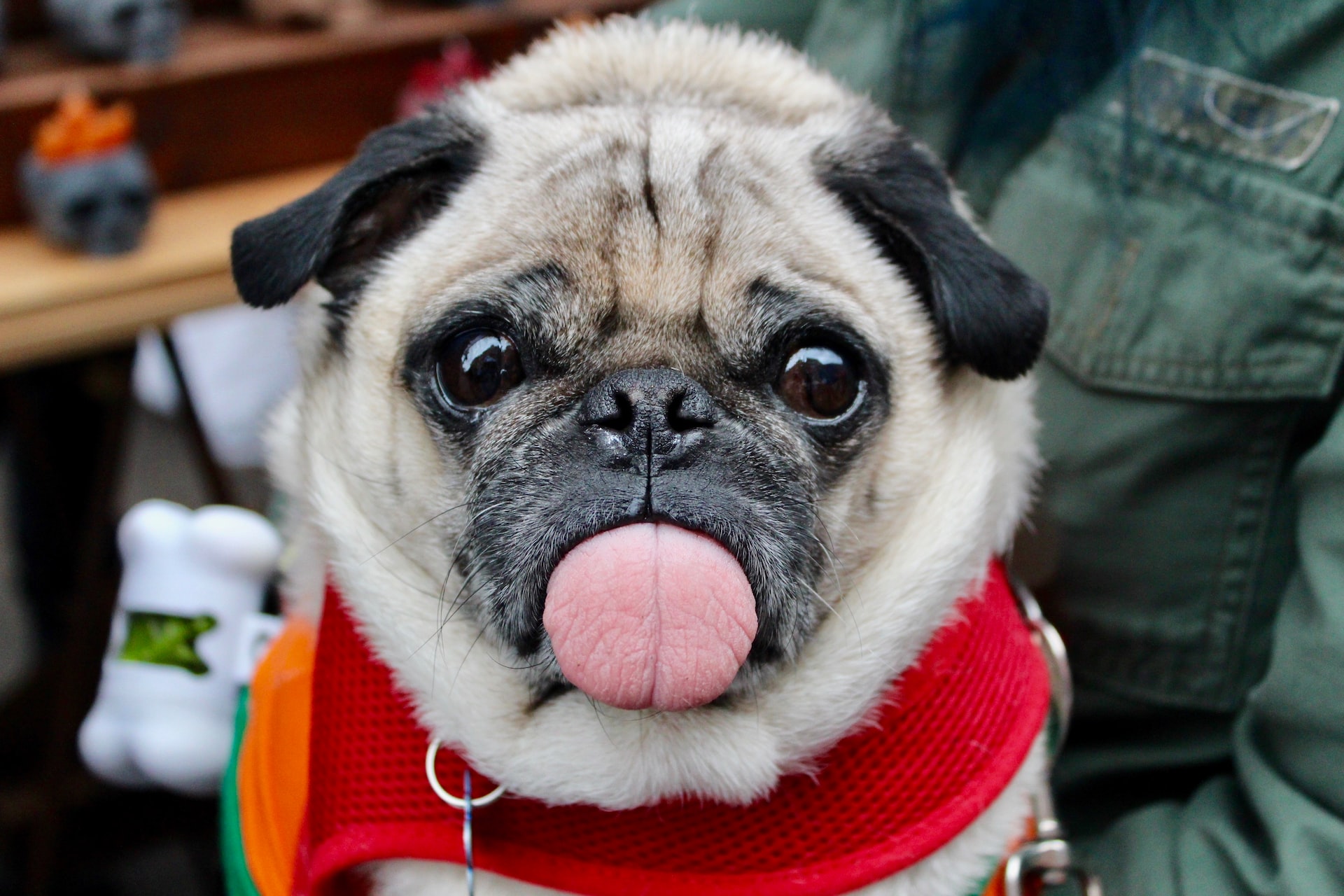
08 Mar My Dog Has Bad Breath, What’s Going on?
Bad breath is often referred to as halitosis by veterinary dentists. Bad breath is a result of the build-up of plaque on the teeth. Plaque forms as quickly as within 20 minutes after a professional pet dental cleaning.
If left unchecked, plaque will form into calculus, which is the mineralized form of plaque. The most common location for calculus in dogs is on the upper jaw on the back cheek teeth. There are 2 salivary ducts that empty on each side in this region. Saliva contains minerals that can form into calculus (tartar) without routine daily tooth brushing.
It Could Be Gum Disease
Periodontal disease occurs in approximately 80 percent of dogs over the age of 3, and it starts with plaque and tartar accumulation. Gingivitis—the initial stage of gum disease—and bad breath manifest with plaque accumulation, eventually leading to advanced stages of periodontal disease.
The oral cavity has its own microbiome, meaning there is a normal flora of bacteria present. When there is a shift in the oral microbiome, the result is halitosis. Periodontal disease disrupts normal oral flora due to chronic inflammation.
Common clinical signs of periodontal disease include bad breath, gingivitis, and mobile teeth. Using a probiotic has been shown to help minimize the microbiome’s disruption, which leads to the rapid progression of periodontal disease.
A COHAT (Comprehensive Oral Health and Assessment Treatment) procedure is also warranted to address periodontal disease, however, a probiotic is a valuable part of the home care arsenal in minimizing periodontal disease.
Choosing a Probiotic for Your Pup
Probiotics have received attention for oral health in human dentistry. The benefits of probiotics noted in human dentistry include managing dental caries, periodontal disease, and halitosis.
Good oral health exists when the microbiome and host are in equilibrium. With the disruption of the normal flora due to oral disease, dysbiosis can lead to increased progression of periodontal disease and additional G.I. signs.
A probiotic will not cure existing periodontal disease, but it can be a beneficial adjunct to optimize gastrointestinal health, including the oral cavity. A healthy G.I. tract leads to improved systemic health
There are numerous probiotics available for dogs and cats. Common formulations included powder, capsules, and probiotic-designed diets. It is crucial to choose a probiotic that is species-specific for optimal benefit. Commonly known probiotics include the following:
- Purina Fortiflora: This product contains individual packets that are sprinkled on food once daily.
- Proviable DC: This product contains seven beneficial strains and comes in capsules as well as chewable tablets.
- Hill’s Prescription Gastrointestinal Biome Dry Dog food: This diet is made with ActivBiome+ Ingredient Technology to rapidly activate the gut microbiome and help manage G.I. issues which can carry over to the oral cavity. Clients have reported reduced oral malodor while their pet has been on this diet.
At-Home Dental Care for Your Dog
Oral home care is an important part of keeping oral malodor and periodontal disease at bay in conjunction with professional dental cleanings. At-home dental care products that may remove plaque include dental treats, dental wipes, pet-specific toothpaste, or gels used in tooth brushing.
However, tooth brushing is considered the gold standard in oral home care. Oral rinses and water additives are generally marketed to remove plaque accumulation, but they are considered largely ineffective without mechanical removal of plaque through brushing.
Clenz-a-dent, a chlorhexidine rinse, is often prescribed to reduce gingivitis and bad breath. The main benefit of water additives is a reduction in bad breath.
Dental Treats & Chews
Dental treats and be a beneficial component of an oral home care regimen. The goal of dental treats is to slow down periodontal disease progression between consistent dental cleanings by your veterinarian or veterinary dentist.
Not all dental chews work in the same manner. Some dental chews contain natural ingredients that inhibit the formation or adhesion of plaque to the teeth. Other products contain anti-calculus agents that inhibit the mineralization of plaque into calculus, while others have antimicrobial properties that kill harmful microorganisms and bacteria in the mouth.
There are also dental chews that reduce plaque via mechanical action. These chews act by scraping harmful substances off teeth as a pet chews on them.
To determine whether a particular dental treat/chew is safe for your pet, you can visit the Veterinary Oral Health Council (VOHC) website. They provide a seal of approval for various products that have undergone testing and demonstrated efficacy as plaque-inhibiting products.
Dental Wipes
Dental wipes are a less effective but viable option for pets that will not tolerate tooth brushing. Dental wipes work by removing some of the biofilm and plaque that adheres to your pet’s teeth. They are not considered as effective as a toothbrush in cleaning the dentition, particularly in the gingival sulcus where the gum meets the tooth.
DentAcetic dental wipes contain a substance called sodium hexametaphosphate (SHMP). SHMP aids in breaking down calcium, one of the minerals that form calculus. It then mixes with the pet’s saliva to help wash away some of the biofilm.
Maxiguard dental wipes contain a neutralized zinc gluconate formulation that decreases the bacteria that form on the tooth surface. Several other pet dental wipes have chlorhexidine gluconate, which like zinc gluconate, decreases the bacterial burden in the mouth.
Toothpaste
Pet-specific toothpaste and gels are important to consider with dental brushing. The vast majority of human toothpaste contain fluoride, which causes GI upset in pets and potential toxic reactions. Two good options are C.E.T. enzymatic toothpaste and Healthymouth oral gel.
- C.E.T. enzymatic toothpaste is formulated specifically for dogs and cats. It contains no foaming agents and is safe for pets to swallow. Flavors include poultry, malt, beef, seafood, and vanilla mint. The vanilla mint flavor is hypoallergenic and can be used in pets with food allergies.
- HealthyMouth oral gel. A 2014 study showed that brushing with HealthyMouth oral gel was more effective than brushing with a placebo gel. HealthyMouth gel comes in 11 flavors to tempt even the most finicky of pets.
Understanding Dental Disease in Dogs
Dental disease is a widespread condition in our companion pet population. As we mentioned before, by three years of age, up to 80% of dogs and cats will have some form of periodontal disease. This statistic is not surprising considering oral home care is not seen as necessary by many pet owners.
For comparison, if we did not conduct daily oral home care on ourselves, we would have dental pathology without a doubt. Keep in mind the following, we brush our teeth 2+ times daily, have professional cleanings every six months, and STILL have cavities, non-vital (dead) teeth, gingivitis, and an additional assortment of tooth and gum disease that manifests.
A congenital predisposition toward dental disease is present in both humans and animals. Additionally, small breed dogs, have an increased tendency for dental disease and include Poodles, Maltese, Yorkshire terriers, Chihuahuas, and Dachshunds.
Dogs with a flatter facial design, also known as brachycephalics, are also at risk. These may include Boxers, Bulldogs, French Bulldogs, and Shih Tzus, to name a few. Other breeds at risk for dental disease include Greyhounds, Labrador retrievers, and Cavalier King Charlies Spaniels.
Additionally, age can play a role in periodontal disease. Older pets, in general, are at increased risk for dental disease. This statement is especially true if they have not received consistent preventative dental care in the past. Older, small breed dogs, have an increased propensity for oral disease and are not inclusive of the breeds listed in the above paragraph.
Veterinary Dentist in Colorado
In conclusion, bad breath can be a symptom of underlying periodontal disease. Probiotics and oral home care can be a useful addition to professional cleanings and treatments. Certain breeds and an increasing age can lead to an increased predisposition for periodontal disease to occur.
It is our goal at Animal Dental Care and Oral Surgery to provide your companion with a healthy oral cavity. Please call us at (719)536-9949 to schedule an appointment to discuss your pet’s oral health concerns.
Photo by Daniel Sandoval on Unsplash

